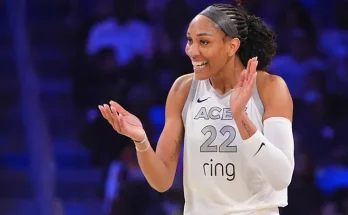We all want to feel seen, valued, and supported—especially by those who look like us, have lived through what we’re living through, or are simply old enough to understand the weight of life’s struggles. That’s what makes the sting of emotional distance from older women in the United States hit so hard.
When someone recently told me, “You don’t have older women as a fan supporting you from the U.S. ,” I laughed it off at first. But later, in the quiet hours, that sentence started to echo. And it didn’t echo because it was some grand political statement or some viral quote. It echoed because it poked a wound that many of us carry quietly—the ache of feeling unsupported by those we hoped would root for us.
A Hidden Expectation
Whether consciously or unconsciously, many of us expect older women—our elders, our mentors, our “aunties”—to be part of our fan club. Not because we demand validation, but because their presence, wisdom, and emotional backing mean something deeper. They represent legacy. They are the ones who have walked ahead of us, who paved paths through fire so the next generation could walk easier.
So, when you look around for that nod of approval, that loving correction, that proud “you’ve got this” from an older woman—and it’s nowhere to be found—it creates a silent grief.
It’s not just about wanting claps and cheers. It’s about wanting to matter to those who should understand why you fight, why you speak, why you create, why you try so hard.
Generational Disconnect
Part of the disconnection comes from the deep generational divide that exists across culture, politics, gender norms, and even spirituality. Older women may have been shaped by values that stress silence, conformity, or survival through appeasement. Today’s younger generation, by contrast, thrives in boldness, challenges norms, and claims space unapologetically.
That clash can feel personal. What we see as self-expression or self-worth, they might interpret as arrogance. What we view as liberation, they may see as rebellion.
Sometimes, the silence of older women isn’t because they don’t care—but because they don’t know how to relate.
Sometimes, they were never given the permission to cheer for themselves, let alone someone else.
And yet, that understanding doesn’t erase the void.
When Silence Feels Like Betrayal
Let’s be honest: silence from someone who should support you can feel like betrayal. Not a loud, dramatic betrayal—but a quiet, stinging kind. The kind where you’re doing something brave, or meaningful, or vulnerable, and the women who’ve lived decades longer than you—who should know the cost—just watch without a word.
They don’t repost. They don’t say “good job.” They don’t send a message. They don’t show up.
And you start to wonder: Did I do something wrong? Am I not good enough? Is it because I’m different? Is it because I’m not what they expected me to be?
But maybe it’s not about you at all.
Maybe they’re still processing their own pain. Maybe they’re mourning the versions of themselves they buried to survive. Maybe watching you walk in freedom reminds them of the chains they still wear. That’s not your fault—but it does affect you.
The Double Standard of Support
It’s often said that women are the backbone of the community. They are the ones who hold families together, march in protests, lead revolutions from kitchen tables. But that doesn’t mean all women are automatically supportive, especially not to each other.
In some cases, older women reserve their support for the “safe” ones—the ones who speak softly, who dress conservatively, who succeed without making waves. If you’re too bold, too different, too loud, too ambitious, too anything—they might look away.
It’s frustrating. Especially when male figures (who typically get labeled as emotionally distant) end up showing more support than the older women you looked up to.
That contradiction leaves you wondering where you fit in. If even they don’t see you—who will?
Craving Intergenerational Love
What most of us want isn’t fame. It’s not even validation, exactly. It’s love—the kind of love that says, “You’re doing well, and I’m proud of you.” The kind that covers you like a shawl on a cold night, without conditions, without judgment.
It’s a deep craving for intergenerational connection, not for mentorship alone, but for family. For safe harbor.
You want to hear the stories of how they overcame heartbreak. You want them to see you and say, “You remind me of me when I was younger—but braver.” You want to be told it’s okay to stumble, and that resilience is more important than perfection.
Instead, sometimes you get silence. Or side-eyes. Or thinly veiled critiques dressed as concern. And it hurts.
What You Do With the Hurt
Here’s what no one tells you: that pain can either harden you, or it can carve you into something more compassionate.
You could decide to become bitter—write all older women off as unsupportive, jealous, or out of touch. But that’s not fair to them, and it’s not fair to you.
Because the truth is, there are older women rooting for you. You just might not see them clearly yet. They’re not always loud or visible. They may show up as the one who compliments you quietly after everyone else leaves. Or the one who watches from afar and prays in silence. Or the one who finally gathers the courage to say, “You remind me that it’s never too late to be free.”
You may not have hundreds of older women cheering for you. But if you find one, or two, that’s enough. Cherish them.
And in the meantime, become the kind of person who breaks the cycle.
Be the Older Woman You Never Had
Maybe you were meant to be the example you didn’t get. Maybe the absence of their support isn’t a sentence—it’s a summons.
You can be the one who claps loudly for the young women behind you.
You can be the one who sends that encouraging message.
You can be the one who stops seeing confidence as a threat.
You can be the one who embraces boldness, creativity, and courage—in others, and in yourself.
One day, you’ll be the older woman someone younger looks to. What will they remember?
Let it be love.
Let it be support.
Let it be that you saw them, and you said, “Keep going. I’m with you.”
Final Thoughts: You Are Not Alone ❤️
Feeling unsupported hurts. Especially when the ones you expected to lift you up remain silent. But their silence does not define your worth.
You are not unseen. You are not unloved. And just because their support didn’t arrive doesn’t mean your journey is invalid.
Keep speaking. Keep creating. Keep healing.
And when someone comes to you, aching from the same wound—wrap your arms around them, and say the words you needed to hear.



